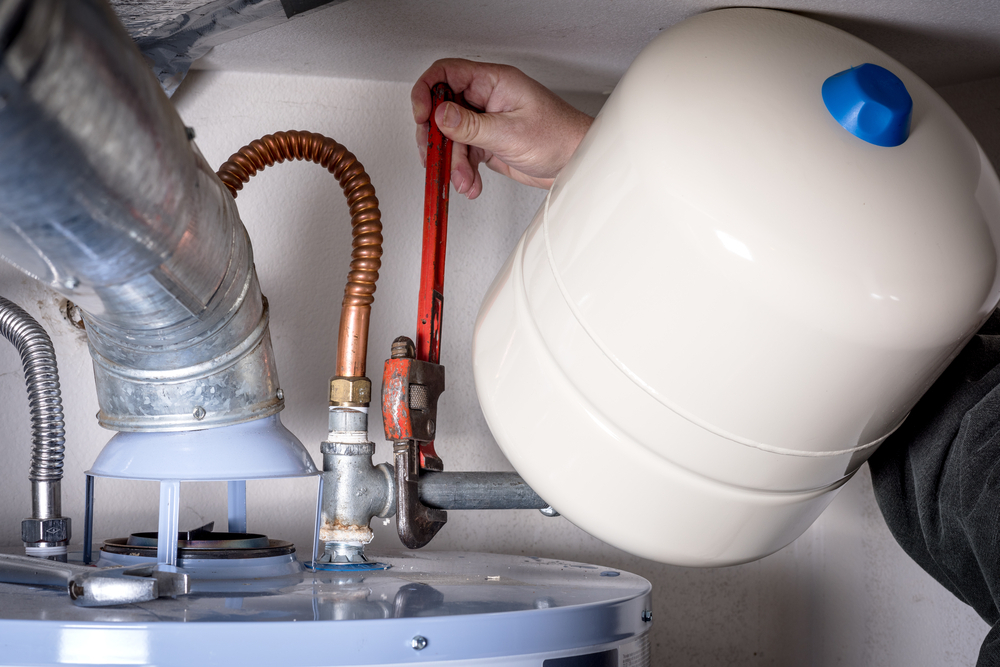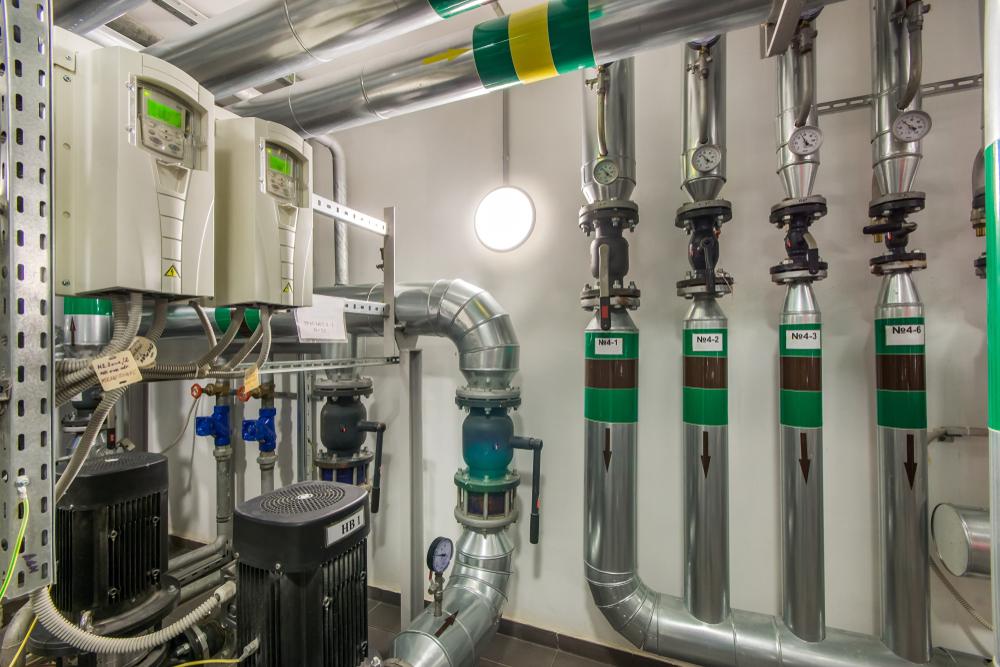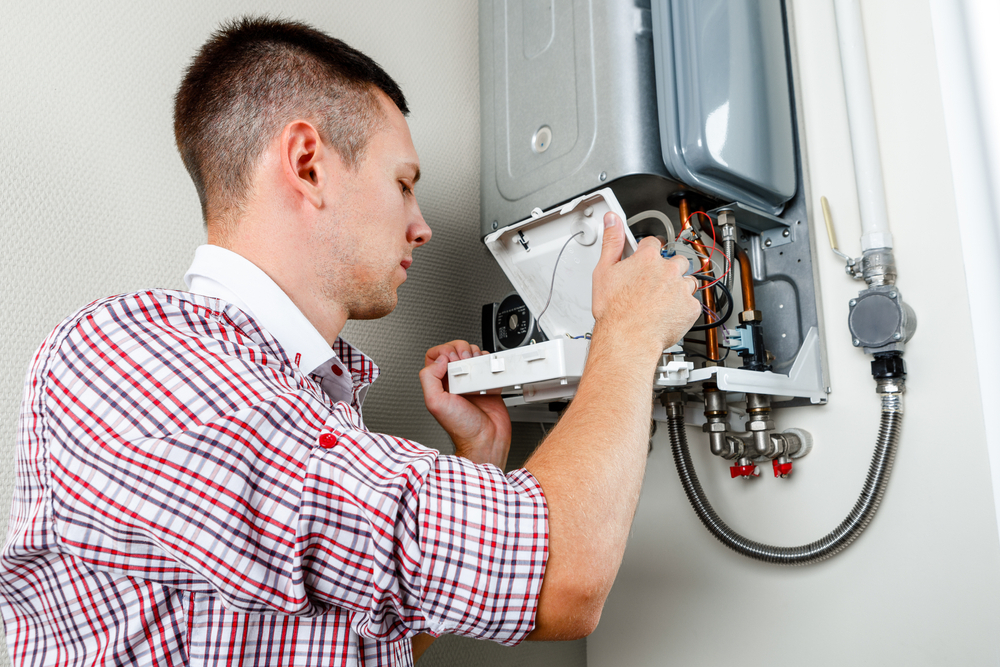Among a home’s most important appliances is a water heater. It offers the hot water required for daily tasks including laundry, dishwashing, and showers. These chores become difficult and maybe unpleasant without a well running water heater. Therefore, ensuring the smooth running of a family depends critically on keeping a water heater in good working condition.
We shall discuss five typical indicators of a broken water heater in this post. Knowing these symptoms can enable you to spot problems early on and take action before they become more major ones. We will also offer doable advice on how to troubleshoot and resolve these problems or when it might be time to completely replace your water heater.

Decreased Hot Water Supply
A sharp drop in the hot water availability is one of the most obvious indicators of a broken water heater. Your showers may be getting colder faster or you may find that running several hot water appliances at once runs out. If your house mostly depends on hot water, this decrease in supply can be annoying.
How a Faulty Water Heater Causes Decreased Hot Water Supply
The main purposes of a water heater are heating water and storing it for usage. The heater could fight to keep a sufficient supply of hot water while it is malfunctioning. There are several elements that can lead to this problem; knowing them will enable you to identify the root reason.
Possible Causes
- Thermostat Malfunction: The thermostat in the heater regulates the water’s temperature within. Should it be set too low or malfunctioning, the water could not be heated to the required temperature, therefore limiting the supply of hot water.
- Sediment Buildup: Minerals in the water might gather at the bottom of the tank over time. Because this silt layer insulates the water from the heating element, the water heater finds it challenging to effectively heat the water. You might thus find a limited supply of hot water.
- Aging Heater: Should your water heater be old, its efficiency can fade with time. Parts like the burners or heating components can fade, which would affect performance.
Troubleshooting and Addressing the Issue
- Check the Thermostat: Review the thermostat. Look first at the thermostat settings on your water heater. Verify it is set to the proper temperature—usually between 120°F and 140°F. Think about replacing the thermostat should it not be working as expected.
- Flush the Tank: Should sediment accumulation be the problem, emptying and cleansing the tank can assist. Cut off the heater’s power source, hook a line to the drain valve, then let the tank empty. This technique can assist clear the silt and raise the heater’s efficiency.
- Inspect the Heating Element: Check the heating element of your electric water heater; it may need replacement. A multimeter will help you to make sure it is operating as it should.
Should these troubleshooting actions fail to fix the problem, it could be time to call a professional plumber or think about replacing the water heater, particularly if its lifetime is almost run-down.
Strange Noises
Strange noises coming from the water heater are another indication of a broken one. Although some noise is normal—that is, the occasional clicking sound produced when the heater is running—loud or unexpected sounds can point to a problem.
Common Noises from a Faulty Water Heater
Your water heater may make pounding, rumbling, or popping sounds. These sounds can be frightening and point to underlying problems that demand attention.
Reasons Behind These Noises
- Sediment Buildup: As was already indicated, silt can gather at the bottom of the tank. As the water heats, the sediment may move about in the tank and produce pounding or popping noises. The noises can grow louder the more silt that is present.
- Mineral Deposits: Hard water has minerals including magnesium and calcium. When the heater is running, these minerals can gather inside the tank and on the heating elements, producing a sizzling or popping sound.
- Expanding and Contracting Metal: Contracts and Expanding: As the water heater heats and cools, its metal parts expand and shrink. Particularly in older machines, this might produce creaking or cracking noises.
Solutions to Reduce or Eliminate the Noises
- Flush the Tank: Frequent tank flushing can help to clear silt and lower noise level. To maintain the water heater working fault-free, this maintenance chore should be done at least once a year.
- Install a Water Softener: Install a water softener if hard water is producing mineral deposits to help to lower the mineral content of the water, therefore preventing further buildup and noise generation.
- Check the Anode Rod: Examine the anode rod; it keeps tank corrosion under control. Should it be worn-out, it could add to the loudness. Examine the rod; if needed, replace it.
Should the noise continue in spite of these attempts, it could indicate a more major problem including a compromised tank or a failed heating element. Under such circumstances, it’s advisable to see a specialist for more investigation.
Leaks
A leaky water heater is a major problem needing quick care. Not only waste water, but if neglected leaks may seriously harm your house.
Importance of Addressing Leaks
Mold development, structural damage, and increased electricity costs can all result from even a minor leak. Leaks must so be found and corrected right away upon discovery.
Possible Causes of Leaks
- Loose Connections: Leaks can result from loose connections to and from the water heater over time. With older buildings, this is frequently the situation.
- Corrosion: As water heaters age, the inside of the tank may corrode and cause little holes allowing water to escape. Older units and those neglected often suffer from this prevalent problem.
- Faulty Pressure Relief Valve: Designed to remove extra tank pressure, the temperature and pressure relief (T&P) valve is flawed. Should the valve be malfunctioning, water could leak.
Steps to Take When Encountering a Leak
- Turn Off the Power: Should you find a leak, your first action is to cut off the water heater’s power supply. Safety depends on this, particularly in cases whereby the leak is close to electrical equipment.
- Shut Off the Water Supply: Turn off the cold water supply to the heater next to stop extra water from filling the tank and aggravating the leak.
- Inspect the Source of the Leak: Should the leak originate from a loose connection, tighten it with a wrench. Take great care not to overtighten since this could damage things.
- Tighten Loose Connections: Replace a malfunctioning T&P valve or another replaceable element if the leak results from one. Use compatible parts meant for your particular water heater model to be sure.
- Replace Faulty Parts: See a professional. Should the leak originate from the tank itself, the device most certainly need replacement since it is beyond repair. Under such circumstances, it is advisable to contact a qualified plumber to evaluate the matter and provide advice on the best line of action.
- Call a Professional: If the leak is coming from the tank itself, it’s likely that the unit is beyond repair and will need to be replaced. In such cases, it’s best to call a professional plumber to assess the situation and recommend the best course of action.

Process of Water Heater
Rusty Water
Another often occurring indication of a broken water heater is rusty water. Should your hot water have a reddish or brown hue, this could mean that the water heater is internal corrosion-inducing.
How a Water Heater Can Cause Rusty Water
Usually, glass or some corrosion-resistant material lines the inside of a water heater tank. Over time, though, this lining may degrade and the metal tank could come into touch with water. Rust can develop and combine with the hot water at this point to give it a stained look.
Potential Causes of Rusty Water
- Corrosion: As discussed, the most often occurring source of rusty water from a water heater is corrosion. Older units or those neglected in particular are especially prone to this.
- Sediment Buildup: Sometimes discolouration in the water results from sediment buildup as well. The water will seem rusty when the silt gathers and breaks down to release particles into it.
Ways to Address and Prevent Rusty Water
- Inspect the Anode Rod: Examine the anode rod. Designed to draw corrosive components from the water, the anode rod keeps them from corroding the tank. Should the rod run out, it loses its ability to perform this role, which causes rust. By routinely checking and changing the anode rod, you may assist to stop corrosion and prolong the life of your water heater.
- Flush the Tank: Regular flushing of the tank helps to eliminate sediment and stop it from discoloring the water. If your neighborhood has hard water, this maintenance chore becomes extremely crucial.
- Consider Replacing the Water Heater: It could be time to replace the water heater if the tank itself is corrobing. Although this can be a large outlay, it’s usually the best choice if you want consistent, hot water.
Age of Water Heater
When evaluating the operation of your water heater, one should take great attention on its age. Water heaters have a limited lifetime, much as all appliances, and older models are more likely to develop problems.
Importance of Considering the Age of a Water Heater
Older water heaters run more likely to have issues including corrosion, leaks, and lower efficiency. Frequent age checks for your unit will enable you to predict these problems and, should a replacement be needed, make plans.
Typical Lifespan of a Water Heater
A conventional water heater typically runs eight to twelve years. The quality of the unit, the water quality in your area, and the degree of heater maintenance will all affect this, though.
Reasons to Consider Replacing an Older Water Heater
- Increased Efficiency: Reasons One Should Think About Changing an Older Water Heater
Greater Efficiency: Because they use less energy than earlier versions, newer water heaters can help you cut utility costs. - Improved Reliability: Water heaters age increase their likelihood of malfunctions and other problems. Changing an outdated unit can help to lower the chance of unanticipated issues and offer piece of mind.
- Avoid Costly Repairs: Although fixing an older water heater can be appealing, the expenses of repairs can soon mount up. Often, it is less expensive to replace the item than keep spending in repairs.
- Enhanced Safety: Older water heaters are more prone to have problems including leaks, corrosion, and malfunctioning pressure relieving valves, all of which could endanger safety. Changing to a new apartment might help to guarantee the security of your house and family.

A Plumber Repairing Water Heater
Conclusion
Maintaining the comfort and convenience of your house depends on a well operating water heater. Knowing the typical indicators of a malfunctioning water heater, including low hot water supply, unusual noises, leaks, rusty water, and unit age, you may act early to solve problems before they become significant ones.
Should one observe any of these indicators, rapid action is crucial. Regular maintenance including tank flushing and anode rod inspection helps your water heater last longer and helps prevent expensive repairs. It could be time to think about a replacement, though, if your apartment is old or shows major problems.
In the long term, keeping educated and proactive regarding the state of your water heater will help you to save time, money, and stress. See a qualified plumber if you are unsure about the condition of your water heater or require help with repairs or replacement. Your water heater should keep giving dependable hot water for years to come with proper maintenance and attention.
Plumbing Services CA
https://maps.app.goo.gl/31Yt4rhDrainzNJ4A
(279) 203-0765
https://plumbingservicesca.com/
